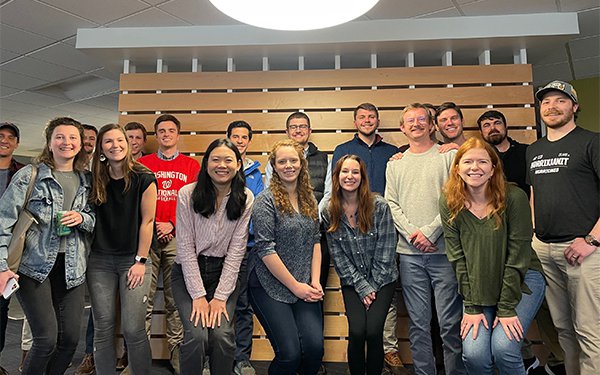Search Agency Of The Year: Merkle
- by Laurie Sullivan @lauriesullivan, January 8, 2023

Merkle does not want to reinvent Google, but as part of its innovative approach, the agency’s developers have built technology to identify signals and determine how search engines react to queries.
The search agency’s plethora of platforms and technologies crunch thousands of data points to personalize experiences while adhering to privacy standards, and then measure the performance to support a variety of search services -- organic and paid -- for advertisers.
Cameron Nichols, vice president, head of search engine optimization (SEO) at Merkle, refers to the tools built by the company as an innovation in thought leadership to help clients stay ahead in an ever-changing landscape.
When Merkle’s agency representatives ask clients to make technology investments, they have enough faith in the decisions made by their reps to follow through -- especially when it comes to identity resolution.
“The ability for brands to acquire a customer and know enough about them to personalize the experience takes a lot of technology,” says Matthew Mierzejewski, senior vice president of search and the performance marketing laboratory at Merkle.
Merkury, an identity solution that supports first-party data collection of searches, identifies site visitors and helps the company personally recommend products or services without the need for browser cookies.
Having the ability to identify and understand client-specific curves in clicks for organic and paid search enables Merkle to create a complete strategy for clients.
Click curves help estimate increases or decreases in website traffic based on the overall site's keyword rankings or positions and clickthrough rates (CTR).
Vertical, specific total-search click curves will enable advancements across all areas of search, and provide an industry-leading innovation proprietary to Merkle’s search program.
Perhaps clients are willing to explore technology investments because Merkle offers its clients the scale of a large company supported by parent company Dentsu and about 15,000 employees across offices in more than 70 cities worldwide.
While it has scale, it built its search practice through specialized segments that are uniquely positioned to carry brands through the details in campaigns.
The agency also publishes a quarterly performance report with information and insights ranging from search to social and retail media. Yet despite its size, the goal to work with clients in a more personal way is valuable.
Merkle offers several technology platforms. Another innovation is called Merkle Matrix, a search intelligence tool that leverages machine learning and artificial intelligence to bring deeper meaning to users' search data. The technology can determine how frequently terms are searched on.
Merkle Matrix takes large keyword data sets and runs them through a machine-learning algorithm and categorizes them to get a sense of the top needs and interests of the consumer. It uses the brand’s data as well as third-party data sources such as Google Search Console or BrightEdge.
Mierzejewski refers to Merkle Matrix as an end-to-end data and workflow solution that is “helping brands reposition the importance of looking at data and organic together.”
It's not just the technology and data analysis that supports Merkle’s nomination for Search Agency of the Year, but also the culture and the forward-thinking approach led by its employees.
Merkle’s employees are changing the way brands think about search. “There’s talk about TikTok overtaking Google as a search engine,” Mierzejewski says. “We’re seeing behavior on TikTok similar to the way consumers use Pinterest, where they search for inspiration. This also is true for apparel. They want to know what’s hot. You’re not going to get that on Google.”
The company is working to integrate with social platforms like TikTok as well as Ad.net -- which manages intent and audience-based targeting campaigns -- and privacy search engines such as DuckDuckGo, Brave and others.
In organic search, Merkle continues to monitor Apple’s search bot for clues about its own search strategy.
The industry will see other changes in 2023. For example, Mierzejewski and Nichols also have analyzed OpenAI’s ChatGPT. They view it as an alternative to Google Assistant or Amazon Alexa -- a “point-in-time transactional quick sound-bite when you’re expecting an answer, but it’s not search.”
Search, Mierzejewski says, is more of a journey. “You have a purpose in mind,” he says. “You’re going to form some type of activity and go through a journey. ChatGPT is more of a natural language, commentary, give-me-a-deeper-level synopsis tool that tells me what I should care about.”















